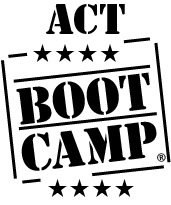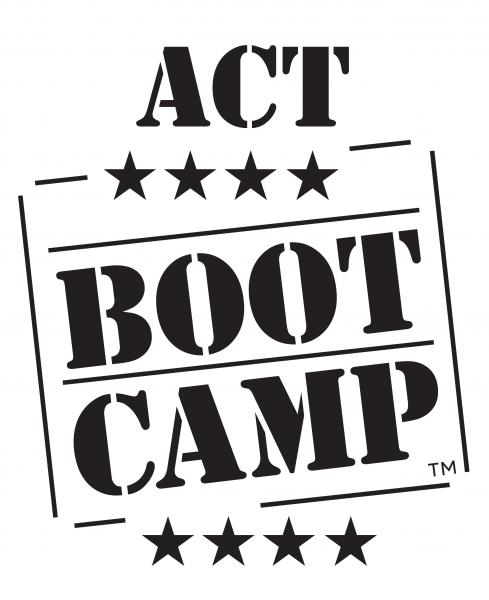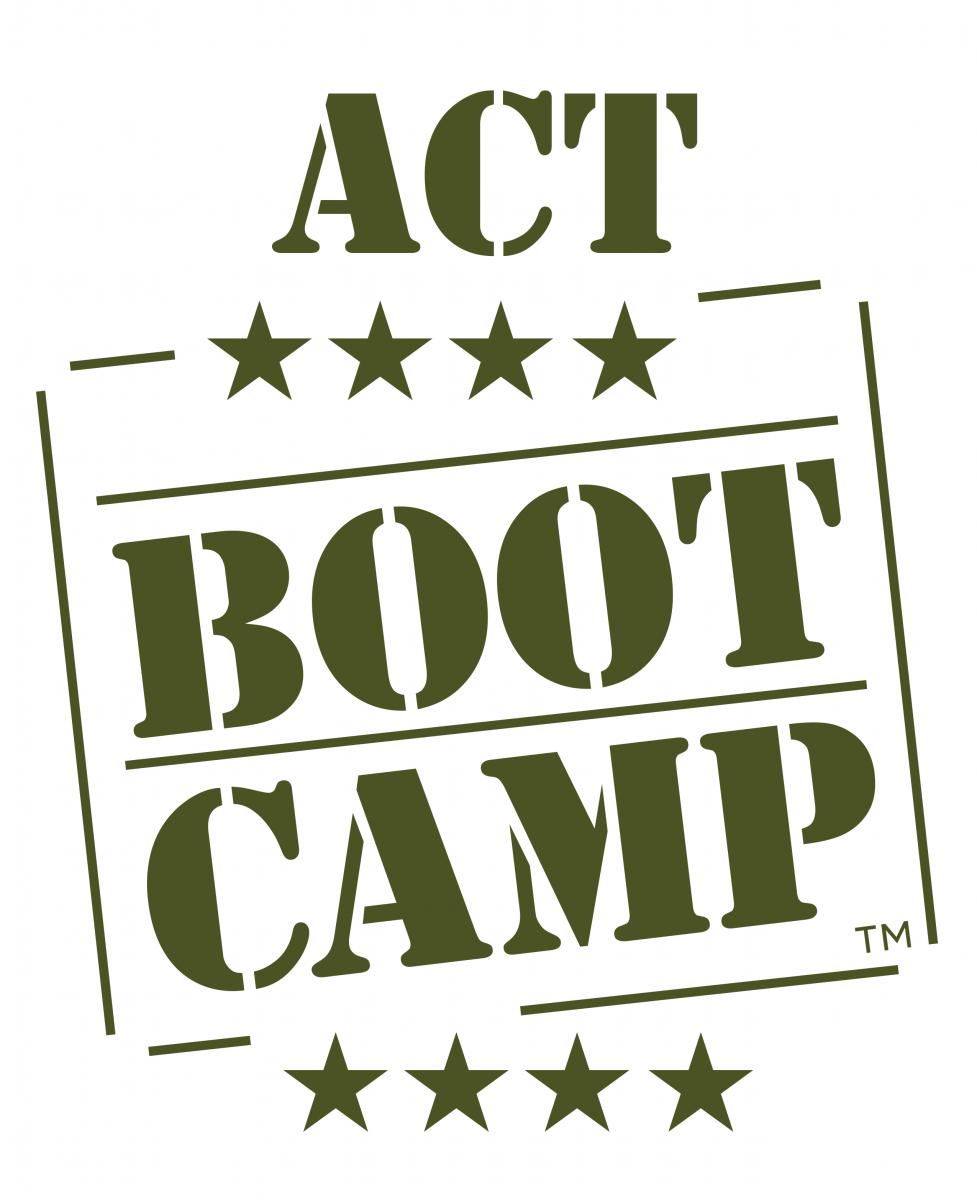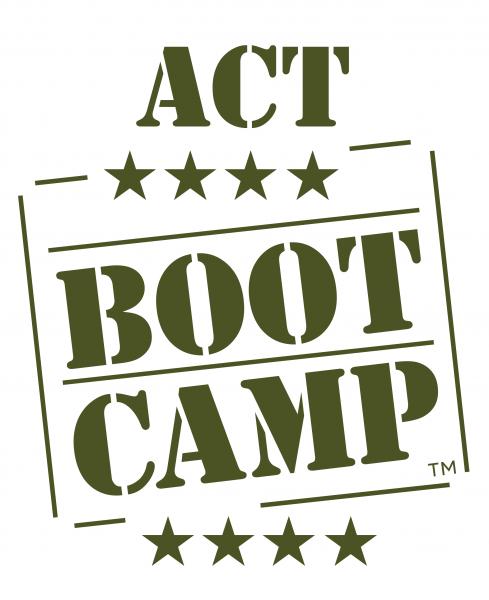Steve Hayes' Training Page
Steve Hayes' Training Page
Welcome to my training page!
This entire site is fillied with training resources, but I use this page so that people who have been to trainings of mine can get oriented to the work. If you cannot see the attachments on these pages it is because you are not yet logged in ... see below.
I generally add talks and resources as I do events and leave just the last couple of years here, but if I forget to add something you want, let me know and I will try to get them up.
At the bottom of this page are links to many materials you might find useful, and links to other areas of the site where you will find more materials.
However, you will not be able to view or download these materials without becoming a member of ACBS. That is because access to attachments, videos, audio, the professional listserv, and so on are a privilege of paid ACBS membership. Becoming a member takes less than 3 minutes, and is an easy one-step process. The link is below.
Some videos etc I cannot put on this page (such as my TED talks. The first one can be found here: www.bit.ly/StevesFirstTED
WORKSHOP ATTENDEES: If you received a special link, use it to join rather than the link below. Then whether you just joined or are already and ACBS member log in first. If you did not get a special link, use the link that is only a couple of lines down from here.
If this "you have to be a member" pitch sounds like a crass attempt to get you to give money to ACBS, well it really is not. It is a crass attempt to get you to be part of a community, and that is much different. With Values-Based Dues, you choose how much you pay for your membership based on what your values are, how you think ACBS furthers those values, and your ability to pay. If you are new and don't know whether this organization and this website is important to you, it is perfectly reasonable to use lower amounts initially and then adjust your dues as you learn what it has to offer [When ACBS went to values-based dues, dues payments went up -- there is a nice ACT-consistent lesson in there]. And of course if you are very poor, go all the way to the minimum. Simply go to www.contextualscience.org/join to complete the process. (If you have an account already, be sure to log in first to see the attachments to this page and throughout the site. You can technically have a website account and not yet have joined -- watch out for that no man's land because you will not see the attachments.). If you do not have a credit card or cannot afford even the minimum (in the Developing Nations, that is not uncommon for example) then just send an email to our Executive Director at acbs@contextualscience.org (or to me -- I will be happy to pay for it). The requirement for a credit card is to avoid spam spiders from joining and loading spam onto the site since once you are a member you can upload anything that seems relevant to the work, creating pages and so on.
I hope that you find these materials interesting and helpful in your journey and that the make a difference in the lives of those you serve.
Peace, love and life.
- S
(Try to solve any problems by searching the site but if you cannot, then email me: stevenchayes "at-sign" gmail "dot" com ... sheesh, why do I even try to avoid spammers?)
Training Slides and Handouts
Training Slides and HandoutsBelow you will find slides and any related handouts from workshops I have given.
Please fee free to peruse beyond the materials from a training you did with me.
2011 Trainings
2011 TrainingsThese are materials for a few workshops I am giving or have given in 2011. Things that seem repetitive I do not upload so if your specific workshop is not here, just try one of the others and see if it is close
2010 Trainings
2010 Trainings Steven Hayes2009 Trainings
2009 Trainings2012 Trainings
2012 TrainingsMy workshops in 2012 have used the same slides set. The one for Chicago and Phoenix is the generic one; the one for Newport Beach is listed specifically. These are in PowerPoint and should load on any system with MS Office on it or equivalent.
Trainings in Germany March 2012
Trainings in Germany March 2012I've attached below a number of resources sent to me by Rainer Sonntag and Georg Eifert that might be of special use to participants in my March 2012 workshops in Germany. If you can see this it is because you haven't logged in. You have to join ACBS and then log in to see the materials.
By the way, there is a German chapter forming and there is more extensive page of German materials on the website. Just search for "German" and you will find it.
2013 Trainings
2013 Trainings Steven Hayes2014 Trainings
2014 Trainings Steven Hayes2015 trainings
2015 trainingsI now do most of my trainings with Praxis, a training company owned by New Harbinger Publications
For information, go to www.praxiscet.com
I've attached a couple of files below however for recent 2015 workshops
2016 Trainings
2016 TrainingsHere are some slides I used in 2016
2017 Trainings
2017 Trainings Steven Hayes2018 Trainings
2018 Trainings Steven HayesACT Boot Camp workshops
ACT Boot Camp workshopsJacque and I ran BootCamp for a few years but frankly the burden of running conferences is not small and we have turned over the conduct of ACT Boot Camp to Praxis, which is a subsidiary of New Harbinger Publications.
If you are interested in ACT Boot Camp go to www.praxiscet.com for the upcoming versions and to get on their email list

ACT Boot Camp Reno February 20-23, 2014
ACT Boot Camp Reno February 20-23, 2014Here are the handouts and some additional materials. All the slides are up too. Woo hoo.
ACT Boot Camp, January 12-15, 2012
ACT Boot Camp, January 12-15, 2012We are going to hold "ACT Boot Camp" in Reno this January 12 - 15.

The first ACT Boot Camp was a complete success!
Thank you to all 161 of you who attended.
We are going to hold "ACT Boot Camp" in Reno this January 12 - 15.
The plan is this.
A two day experiential workshop will be held Thursday and Friday January 12-13 and Saturday and Sunday will focus on skills training.
There will be evening presentations each day -- talks on the model, data, sessions on reading ACT processes, and similar things.
Other than expenses and an honorium for two presenters, all income will go to support the lab in Reno.
For the individuals who want to know about level. It's a question that's tough to answer because categories like "introductory" or "intermediate" capture so little of the variance
and the topics keep changing and evolving so what is in a beginning workshop now is often not what was there a few years ago.
Let's just say it this way:
There are things in here that will benefit people of all skills levels, but it is not deliberately cast at an intermediate or advanced level. We set it up with beginners and intermediates particularly in mind.
Continuing Education credits:
We will be issuing CEUs for this event.
They will be issued through the Association for Cognitive Behavioral Science (ACBS), so APA-approved!
The credits will be for:
• Psychologists
• MFT
• Social Workers
We can get MFT and SW CEUs in California through ACBS, however, people will then have to get them recognized in their particular state.
*****Register at (www.contextualpsychology.org/join) ACBS before attending the Boot Camp*****
Schedule:
Start at 8:00am all days.
End at 9:00pm on Thursday, Friday, and Saturday.
End at 4:30pm on Sunday.
Payment Method:
*********************
While this PayPal button will happily take your money
regardless, you have to take an additional step to
make sure we know who you are so we can match the
money to your actual registration.
Send an email to:
ACT.in.Context@gmail.com
with your name, contact information, and level of registration.
Make sure the name you use there and the one you then use in checking out
with PayPal (your credit card, etc.) are the same or tell us how to match the
names if they differ (e.g., "I used Geraldine Fickwat's credit card but that is
my sister. My name for registration is ..." or "I used my corporate card for registration
in the name of the 'ACT Center for All Things Wonderful' but actually my
name is John Jones and my contact information is ...
It's a kludge solution, we realize. We are working on a real one,
but in the meantime help us out.
And it would be wise to save your PayPal receipt in case of problems.
*********************
Hotel:
ACT Boot Camp will be held at the Silver Legacy hotel in Reno.
We have a block of 60 rooms but more are available. However the deadline to reserve a room is very short: 1 week.
The rooms are super nice and are $49 Wed and Thursday night and $69 Friday and Saturday. Technically, after 2 people are in the room rates go up by $10 per person per room. Max 4 / room.
***Click Here*** to make your hotel reservation online using group code ACT12.
OR...
Call Silver Legacy at 1-800-687-8733 and give the group code ACT12. Reservations received after December 21, 2011 will only be accepted on a space and rate availability basis. Now in fact this is a slow period so that would likely still work but don’t risk it. You can stay elsewhere if you like but this will be convenient to the meeting and it is a good deal. And getting 60 rooms filled is how we got the meeting room.
Transportation:
AIRPORT: The Reno Tahoe International Airport (RNO) is a mere 4 miles from the resort and takes only 12-15 minutes to arrive.
SHUTTLE: The Silver Legacy offers shuttle service daily from 5am – 12 Midnight running every 30 minutes. The shuttle leaves hotel valet at the hour and half hour and picks up at the airport at 15 and 45 minutes past the hour.
PARKING: Both a 10 story parking garage, and Valet parking are available.
DRIVING: The Silver Legacy a landmark in downtown Reno and our gracious tower can be seen upon approach from any direction. The Silver Legacy is easily accessible from both the 395 and 80 freeways.
Hertz:
The Silver Legacy has arranged for special car rental rates for attendees. For your convenience there is a complete Hertz rental desk located in the Resorts Lobby and Reno Tahoe Airport near the baggage pick-up. Cars can be rented or returned at the Resort, or any Hertz Corporate location. For Hertz reservations, please call 1-800-654-2240, and use group code CV# 03VW0004.
ACT Boot Camp, March 14-17, 2013
ACT Boot Camp, March 14-17, 2013At the bottom of the page you will find the material relevant to the March 2013 ACT Boot Camp workshop. We will be updating this as we go so recheck the pages.
We will be handing out a packet at registration containing all the information needed for your workshop participation. Registration is in the Bubinga Lounge Wednesday from 5:30pm to about 10 (the meet and greet cash bar opens at 7) in the El Dorado Hotel. Registration will reopen Thursday at 7:30am in the Convention Center. Prepare yourself for some loooong days. This is called Boot Camp for a reason!
Some of the Trainers have provided their PowerPoint’s if you want to download them to follow along.
If you have any questions or need assistance, email Brian Cooper <ACT.in.Context@gmail.com>.
- S
"Love isn't everything, it's the only thing"

ACT Boot Camp, September 5-8, 2013
ACT Boot Camp, September 5-8, 2013
You will find at the bottom of the page materials to download for the ACT Boot Camp in Florida.
If you have any questions or need assistance, email Brian Cooper <ACT.in.Context@gmail.com>.

ACT and Gestalt: why are they similar?
ACT and Gestalt: why are they similar?It is very common for people to notice that ACT looks a bit like Gestalt or Emotional Focused Therapy. That links has been there from the beginning. Les Greenburg is on the back of the original ACT book for example. Why would that be?
Part of it is that contextual behavioral thinking helped establish Gestalt therapy.
Gestalt therapy never had much to do with Gestalt psychology -- even the Gestalt
psychologist that were still around rejected the comparison.
See the attached article for documentation and explanation.
Ralph wanted to call it integrative therapy ... think of how the history of psychotherapy might have been different had that happened. The ACBSers are just walking over that same ground.
All About ACT: ACT Handouts for Professionals
All About ACT: ACT Handouts for ProfessionalsThe materials below contain a longer handout (with brief description of ACT as a treatment, as well as suggestions for further reading, measurement materials, treatment protocols, and current research findings); a list of ACT randomized trials;
and a short, focused handout I use in my workshops for the Institute for Advancement of Human Behavior.
Brief audio exercises
Brief audio exercisesThese are jsut brief exercises you can use.
Clinical Tools & Protocols
Clinical Tools & ProtocolsThe resources attached below are helpful for doing ACT. There is an amazing number of protocols on the site ... I just attached a few to show examples.
There are many more resources, such as introductory materials for clients, other protocols, metaphors, exercises, visual aids, and so on, available on the site here: www.contextualscience.org/clinical_resources
Fun things
Fun thingsThis is a page just with things I like ... mostly from other people. The poem from Jason Luoma (The ACT Therapist) is awesome.
The Greek film is one of those "open your eyes; touch your non-toothache" pieces that moves we every time I see it
Handouts to Use with Clients
Handouts to Use with ClientsBelow are a few handouts you may wish to use with clients.
There are more available at www.contextualscience.org/clincial_resources
How to test RFT
How to test RFTHOW TO TEST RFT
I occasionally hear the old chestnut that "RFT is not really testable."
It makes me mad.
Over two decades ago my students and I laid out a fairly well crafted list of ways you can test RFT.
I've put the in the page numbers of the quotes below for a reason: so you can cite specific predictions if you want even if you do not have access to this book.
Many of these predictions are now known to be true. And not one piece of disconfirmatory evidence has yet emerged, so far as I know.
I would invite RFTers who are publishing new pieces to occasionally remember our history. If you agree with me that these were indeed reasonable stakes to pound in the ground 20 years ago, then every once in a while it would be good remind readers that the theory was laid out in testable ways from the beginning. There are dozens of such predictions in the 2001 purple book but even before that, we were putting our ideas on the line and asking for help in showing where and how the theory was wrong. In the history of science all theories are wrong -- in their details at least -- given enough time and effort to test them. That surely includes RFT. I'm not a falsificationist but risky tests are pragmatically useful because as we learn more about the contextual conditions under which knowledge claims, we advance the precision, scope, and depth of our analyses.
Anyway, the summary below should be of use.
- Steve Hayes
*******************************
Hayes S. C., Gifford, E. V. & Ruckstuhl, Jr., L. E. (1996) Relational frame theory and executive function. Chapter in G. R. Lyon & N. A. Krasnegor (Eds.), Attention, memory and executive function (pp. 279-305). Baltimore: Brookes.
From p. 298:
TESTS OF THE THEORY
A theory of executive function based on relational frames has two somewhat distinct components that can be tested: whether relational frame theory is a worthwhile account of human verbal behavior and verbal regulation, and whether executive function can be usefully thought of in these terms.
Relational frame theory argues that relational frames are learned and are not primitive psychological functions. We already mentioned five testable components to this claim: They should show clear developmental trends, they should be flexible, they should be under both antecedent and consequential control, and improved relational abilities should emerge from deliberate training. Supportive data exist in each these five areas, but much more remains to be done.
The last point is particularly in accord with the pragmatic assumptions of behavior analysis: The best way to test a theory or device is to see if it can lead to more effective treatment (Hayes, Nelson, & Jarrett, 1987). Training could occur with populations who have disabilities in rule generation, rule understanding, and rule following, such as children with attention deficits or hyperactivity, youth who are antisocial, and those with mental retardation. Typical youth could be
From p. 299:
given procedures designed to modify existing repertoires and accelerate their healthy development.
These five testable components of the claim that relational frames are learned also suggest ways that this key aspect of relational frame theory can be disproved. If derived stimulus relations are present in whole cloth in neonates, or emerge without training in nonhumans, the theory is disproven. If new, more subtle, or more complex stimulus relations cannot be taught to children and brought to bear on arbitrary events in a fashion envisioned by the theory, it is disproven. The theory argues that a wide variety of relations can be trained and that derived stimulus functions will be transformed by these underlying relations. The first point has some empirical support, but not yet the latter. If complex relations are merely a by-product of equivalence and nonequivalence, and if derived functions are merely transferred, not transformed, when relations such as oppositeness pertain to two stimuli, the theory is disproven. A key idea is that relational frames are a defining feature of human verbal behavior. If the behavioral functions of verbal events (e.g., self-awareness, construction of long-term futures and a resultant reduction in impulsivity, complex problem solving) do not emerge in children in a fashion that parallels developing relational abilities, the theory is disproven. If complex relational frames can be developed in nonhumans, without also seeing some of the effects produced in humans by verbal behavior, the theory is disproven.
If relational frame theory is correct, children should show increased abilities in verbal regulation as they learn to apply more complex relational frames to events (e.g., if-then, comparatives). The theory suggests that the key aspects of training are 1) increases in the number of available relational frames, 2) increases in combinatorial abilities and the resultant complexity of the derived relational networks, 3) greater sensitivity and subtlety in the contextual control of relational frames and resulting increases in both their arbitrary applicability and appropriate regulation by physical context, 4) increased ability to transform stimulus functions through derived stimulus relations and greater sensitivity and subtlety in the contextual control over this process of transformation, 5) greater ability to relate networks of relations, and 6) greater ability to alter the functions of the previously nonverbal world by including aspects of this world in relational networks. As these performances increase in children, we should see increases in self-control, reasoning, and problem solving-if not, the theory is disproven.
According to the theory, following verbal rules is a product of the ability both to apply if-then frames to events and to transform the functions of verbally constructed consequences and of experience with contingencies that support specific types of rule following, such as pliance, tracking, and augmenting. Both contentions are clearly testable. Our line of thinking also suggests that pliance usually helps establish tracking, which helps establish augmenting. It suggests that moral development and other complex forms of rule governance normally emerge in that sequence and may need to be trained in that sequence. It also suggests novel ways that deficits in rule following may occur, such as mismatches of
From p. 300:
types of rules and rule following (e.g., the tendency for persons with some histories to treat descriptions as demands and thus to show pliance or counterpliance instead of tracking in these situations).
Testing these effects of verbal rules will be difficult, but behavior analysis offers the field at large not just a theoretical approach, but also a set of methods that are highly precise and well-developed. These include refined methods of arbitrary matching-to-sample and methods for testing the effects of rules on sensitivity to changes in environmental demands. Behavior analysts have also argued for and used refined "talk aloud" methods for detecting the participation of verbal rules in problem solving (Hayes, 1986; Wulfert, Dougher, & Greenway, 1991).
Measures and Tools for Case Formulation and to Track Therapy Outcomes and Processes
Measures and Tools for Case Formulation and to Track Therapy Outcomes and ProcessesHere are a few commonly-given measures to assess client progress in key ACT domains.
There are many more available, including foreign language and population-specific versions of measures, as well as information on who developed them; all available by visiting the Measures & Assessment section of the site.
Therapy Transcripts
Therapy TranscriptsThese files are transcripts of real treatment sessions with clients (recorded and shared with permission). Please treat them carefully as they are confidential clinical materials.
Videos of one of these sessions is available for purchase from APA:
Acceptance and Commitment Therapy with Steven C. Hayes. (Part of the Systems of Psychotherapy APA Psychotherapy Video Series)
Also, there are many other videos available for purchase and all make great training materials. To explore other formal materials for learning and doing ACT, visit: www.contextualscience.org/books_tapes
World Conference 13 in Berlin slides and materials
World Conference 13 in Berlin slides and materialsHere are the slides and handouts for my PreCon and the slides for my talks at WC 13 - Steve Hayes
WorldCon XI in Sydney Pre-Conference Workshop
WorldCon XI in Sydney Pre-Conference WorkshopHere are miscellaneous materials from our workshop
including some some clinical tools, measures, and several articles ...
By the way, to understand what the "ACT ADVISOR" stands for open the file just by that name (its a simple rating scale -- no items -- but the key explains the acronym)
The slides are up. Most of the RFT slides in Day 2 are in the Day 1 section and many of the Day 2 slides were not used
- S
ACBS Conference Talks from 2010 or earlier
ACBS Conference Talks from 2010 or earlierBelow are slides from talks I have given on ACT, RFT, and Contextual Behavioral Science at conferences and meetings.
